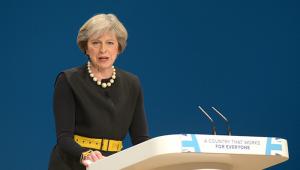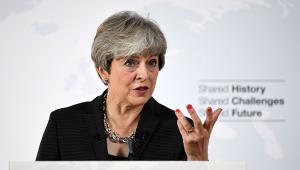This is on condition the European Union grant the same rights to 1 million Britons living in its domain, the prime minister stated at a summit in Brussels yesterday.
But opposition parties have said this does not go far enough and European leaders received the statement with caution.
Under the proposal EU citizens who have lived in the UK for five years would be granted ‘UK settled status’, allowing them to access healthcare, education and other state benefits once Britain leaves the union in 2019.
May said: "No one will face a cliff edge." She added: "The UK's position represents a fair and serious offer, one aimed at giving as much certainty as possible to citizens who have settled in the UK, building careers and lives and contributing so much to our society.''
The government said details of the plans will be published on Monday. Currently, there has been no announcement of what the cut-off date for eligibility will be.
Angela Merkel, the German chancellor, said: “This is a good start,” she said. “But of course there are many, many other questions.”
Keir Starmer, Labour’s shadow secretary of state for exiting the EU, said that May’s offer was “too little too late”.
People “should not be bargaining chips in the Brexit negotiations”, Starmer added, and repeated Labour’s offer of giving EU workers a “full and unilateral guarantee” they could stay in Britain post Brexit.
Tim Farron, leader of the Liberal Democrats, said: “Theresa May could have given a guarantee from day one, instead she has allowed our friends, colleagues and neighbours to live in uncertainty for a year.
"Many EU nationals including those working in the NHS have already left because of this government's heartless approach.”
May’s offer comes after the Queen’s Speech on Wednesday, which was dominated by legislation to leave the EU and had little significance for the public sector.
The announcement also follows warnings by public sector organisations and unions that Brexit and stricter immigration policies could have a detrimental effect on recruitment in areas such as health and social care.
Jonathan Portes, professor of economics and public policy at King’s College London, issued a similar warning at a CIPFA debate in April where he stated the public sector workforce had already felt ‘Brexit strain’.
Office for National Statistics figures came out in May showing a “statistically significant” drop in net migration, driven mostly by the departure of EU citizens.
Research from the Health Foundation in June revealed that there was a 96% drop in EU nurses registering with the Nursing and Midwifery Council since July last year.
The deadline for the UK to exit the EU is 30 March 2019.
Today the Evening Standard newspaper, now edited by the former chancellor George Osborne, ran an editorial claiming in the days after the EU referendum last year, the then prime minister, David Cameron, wanted to assure all EU citizens of the right to stay in the UK.
The piece alleges that all the cabinet members backed this move except for Theresa May, who was then serving as home secretary.











